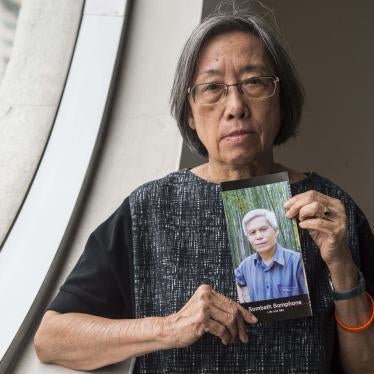“If anyone is found indulging in protests or other such activities, they will be dealt accordingly," proclaimed Nepal’s police spokesperson on March 10.
On this date, worldwide Tibetans commemorate the failed 1959 rebellion against Chinese rule, calling it their National Uprising Day. These are usually peaceful protests, with some slogans for “Free Tibet,” and then the demonstrators are dispersed.
But in Nepal this year, Tibetans could only gather privately for prayers since the authorities denied their right to peaceful protest. In recent years Nepali authorities have caved to intense Chinese pressure to block alleged "anti-China activities" – a term that has no meaning under Nepali law. But that didn’t stop authorities warning against protests and deploying police to prevent any transgressions. Such activities, said Kathmandu’s Chief District Officer Ek Narayan Aryal, are against Nepal’s commitment to its “one-China policy.”
This is a disappointing, though unsurprising, decision from the Nepal government. A 2014 report by Human Rights Watch found that Nepal is imposing ever-more stifling restrictions on the Tibetans’ exercise of freedoms of expression and assembly. Under Chinese pressure following a violent crackdown on protests in Tibet in 2008, the Tibetan community in Nepal has effectively lost the right to overtly organize political protests and faces considerable difficulty holding cultural, social, or religious activities that have an indirect political dimension, such as celebrating Tibetan New Year or the Dalai Lama’s birthday.
The Nepali government’s suppression violates its commitment to international protection of refugee rights. Nepal does not deny that it prevents Tibetans refugees from exercising the right to peaceful expression and assembly citing instead its “geopolitical sensitivities.”
This is a sad reversal from centuries of close ties between Nepal and Tibet. At least 20,000 Tibetans live in Nepal; thousands of others have trekked across the Himalayas into Nepal as the most direct way to eventually reach Dharamsala, in northern India, where the Dalai Lama, the Tibetan government-in-exile, and 80,000 Tibetans are based. But since 2008, the start of a massive security presence in Tibetan areas of China and increased cooperation between Nepali and Chinese security forces, the flow of Tibetan refugees escaping to Nepal has become a trickle.
While it is difficult to resist the pressure and cheap assistance that its bigger neighbor has to offer, Nepal should uphold its international commitments and recall its own protracted struggle for democracy and human rights. It should make it clear to China that it will not restrict basic rights of peaceful expression, assembly, and association for its Tibetan residents.






